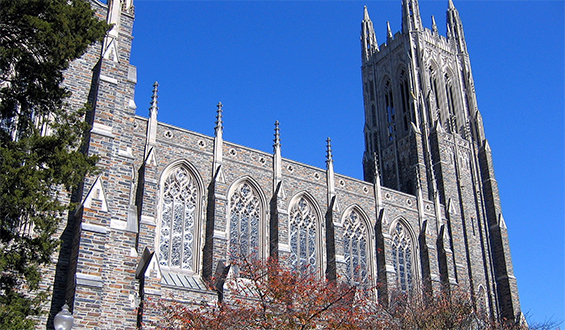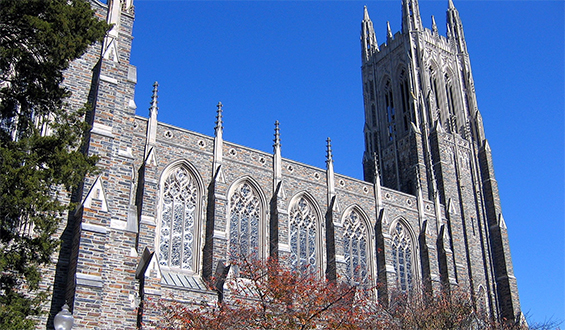 (Photo: Wikimedia Commons)
(Photo: Wikimedia Commons)
The National Labor Relations Board has announced that a majority of Duke University adjunct faculty members have voted in favor of being represented by the Service Employees International Union.
In all, 203 ballots were cast. Of that, 174 voted in favor of the union while just 29 voted against union representation. A total of 102 votes were needed in order to achieve union representation. A total of 296 people were eligible to vote, said an NLRB spokeswoman.
Prior to the vote, a website had been created by Duke University in an effort to fight the union, telling faculty members that they represent themselves better than any union could. However, once the vote had taken place, a statement was issued by the university saying they respect the decision, writes Douglas Belkin for The Wall Street Journal.
Over 80 faculty members sent an open letter to Duke President Richard Brodhead in December arguing that the number of contingent faculty at the school has greatly increased over the last decade. In all, 41% of Duke faculty members do not have access to tenure, a trend seen increasingly across the country.
A petition to hold the election had been filed with the labor board in February by part-time and full-time non-tenured faculty. The effort was led by a group known as Duke Teaching First. The group was seeking better pay, benefits, and job security.
After the results are certified by the NLRB, the Service Employees International Union (SEIU) will become the representative for close to 300 non-regular rank faculty members in Trinity College for Arts & Sciences, the Center for Documentary Studies, and the Graduate School. Regular rank and tenure track faculty will not be included in the union.
“While we are disappointed not to be able to continue working more directly with our colleagues, we are glad that together we made some advances this past year that will impact many of our adjunct faculty,” said Duke Provost Sally Kornbluth. “We remain committed to their success as members of our faculty and contributors to Duke’s academic mission.”
Duke officials plan to begin to work with union representatives toward a collective bargaining agreement.
“While the process is underway, we expect most aspects of our working relationship with the members of the bargaining unit to remain status quo,” said Kyle Cavanaugh, vice president for Administration.
According to the Service Employees International Union, the faculty members will be joining close to 10,000 other instructors who have unionized over the last three years, including at the University of Chicago, Tufts and Georgetown. Duke is said to be the first private school in the Southern United States to organize.
Duke employs 3,500 faculty members. Of those, 80% are tenured, on track to becoming tenured, or on multi-year contracts, writes Jane Stancill for The News and Observer.
Faculty members at the school argue that the university has the funding to boost compensation for adjuncts, arguing that despite the investments into new buildings and overseas campuses, only 9.5% of its total expenditures went toward teacher salaries in 2013.
“Duke relies on non-tenure track faculty to teach a steadily increasing percentage of its courses. It is time to offer our ‘contingent’ colleagues fair working conditions.”




